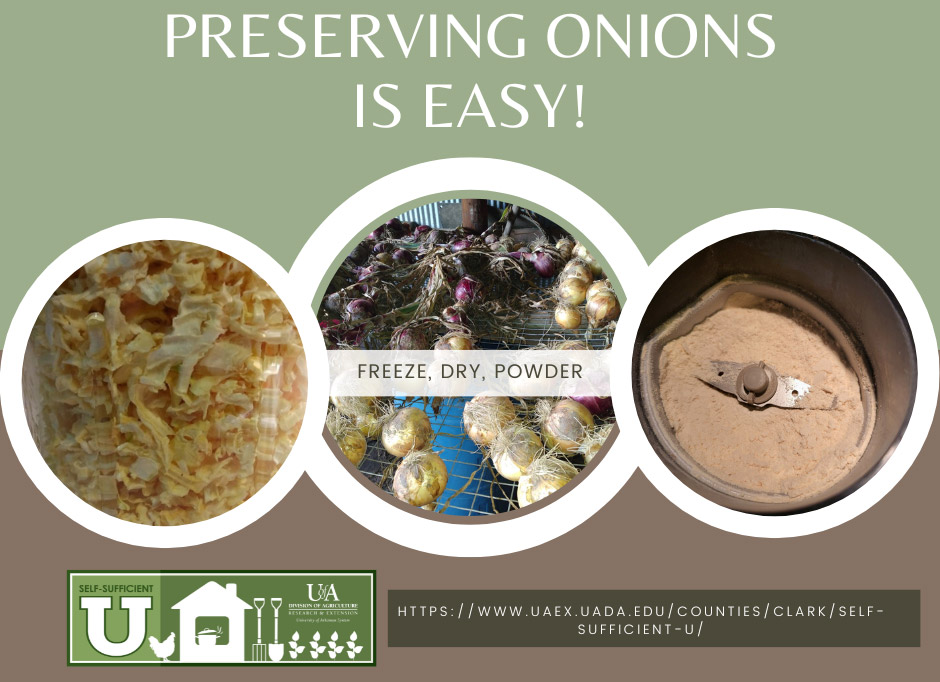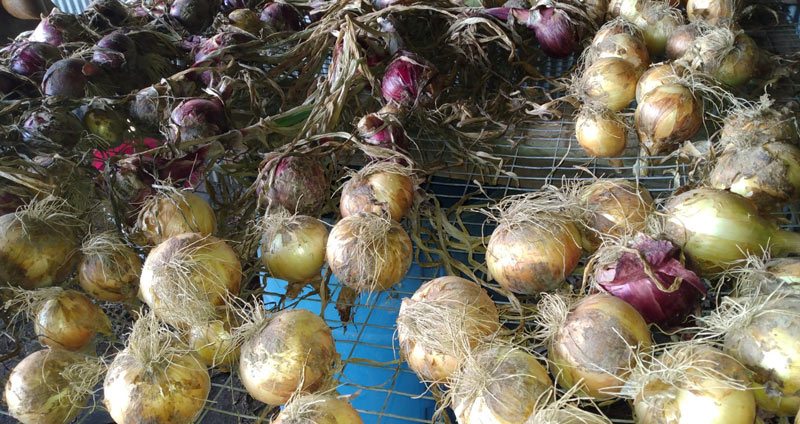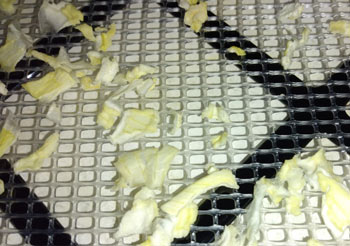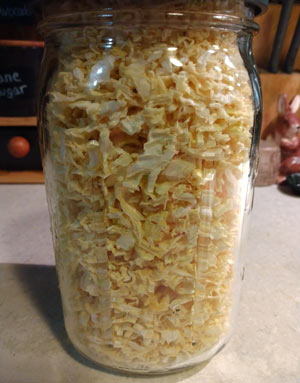Self-Sufficient U Blog
Contact
Clark County Extension Service
Amy Simpson, Horticulture
Cindy Ham, 4-H and Ag
JoAnn Vann, Family & Consumer Sciences
Phone: 870-246-2281
Email: clark-arkadelphia@uada.edu
Follow us on
Facebook
Clark County
Cooperative Extension Service
640 S 6th Street Suite B
Arkadelphia, AR 71923
Don't Let Your Onions Go to Waste: Dry or Freeze Them Instead!
by JoAnn Vann

It's easy to make dried minced onion and onion powder or freeze onions for later use.

In the spring, fresh onion from the garden is a delight to the tastebuds after a long winter of only having store bought onions. Every year we grow more onions than we can possibly consume before they start to go mushy.
Last year, I began experimenting with different preservation methods to save as much of the homegrown crop as possible.
What works well for us and maybe for you too is a combination of freezing diced onion for cooking with and drying minced onion. There is no comparison between fresh ground onion powder and that from the store.

Each method starts with clean onion bulbs with the outer skins removed.
How do I freeze onions?
For freezing, follow the National Center for Home Food Preservation | How Do I? Freeze (uga.edu) onions directions: “Peel, trim and clean thoroughly. Dice (about 1/4-inch pieces). No blanching is required. Either pack dry into recommended freezer bags or containers, leaving 1/2-inch headspace. Or freeze separated pieces on a clean tray prior to packaging. Eliminate as much air as possible from the package for this method. Onions frozen this way are best used within a few months.”
How do I dry onions?
 For drying, the National Center for Home Food Preservation | Drying Fruits and Vegetables (uga.edu) recommends: “Simply wash the onions, and peel off the outer "paper" layers. Cut off
the ends of the onions, and slice into 1/8- to 1/4-inch slices. No blanching is required
before drying. If using an electric dehydrator, allow onions to dry for an estimated
3-9 hours. If using a conventional oven to dry, the drying time may be up to two times
longer than in an electric dehydrator.
For drying, the National Center for Home Food Preservation | Drying Fruits and Vegetables (uga.edu) recommends: “Simply wash the onions, and peel off the outer "paper" layers. Cut off
the ends of the onions, and slice into 1/8- to 1/4-inch slices. No blanching is required
before drying. If using an electric dehydrator, allow onions to dry for an estimated
3-9 hours. If using a conventional oven to dry, the drying time may be up to two times
longer than in an electric dehydrator.
Since onions have such a strong odor, be sure to not dry them with other items at the same time to prevent the other foods from absorbing the onion odor. Lastly, foods dry much faster toward the end of the drying period; so, watch them closely at the end of the end of the drying period to avoid scorching.”
 Onions should be dried until they are brittle and crisp to the touch. Once dry, store
in an airtight container to prevent moisture from re-hydrating your onions.
Onions should be dried until they are brittle and crisp to the touch. Once dry, store
in an airtight container to prevent moisture from re-hydrating your onions.
Once your onions are dried, it is simple to make fresh onion powder whenever you need it!
Whole or pieces of dried herbs and vegetables last longer than ground/powdered products. I only grind a small amount (usually a weeks’ worth) of onion powder at a time for the best taste and freshness.
You could use a food processor or blender, but you will lose much of your powder due to the size of the vessel. I use a small electric coffee grinder but keep a mortar and pestle on hand for power outages.
I love that using these methods, rarely a week of the year goes by that we miss out on having homegrown onion available for preparing our meals.
Never grown onions at home?
Learn how in our publication: Onions (Home Gardening Series) - FSA6014 and you can always call our expert Agriculture Agents!